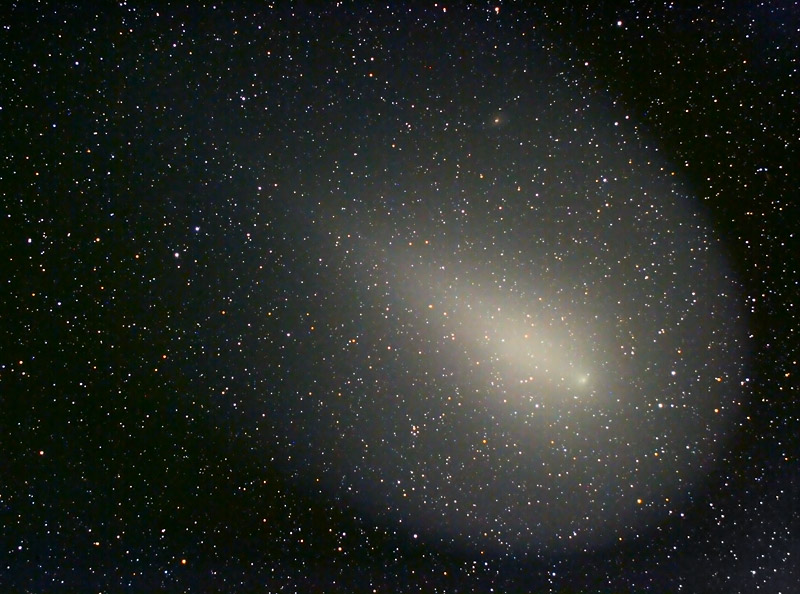
Comet Holmes (17P/Holmes), 12/15/2007
Holmes remained a fairly easy naked eye object through 12/29/2007 as seen from the dark skies of Wimberley, TX. I shot Comet 8P/Tuttle that trip.

Comet Holmes (17P/Holmes), 12/15/2007
Above: Was not able to clearly see Comet Holmes through the scope last night, but the camera & some processing shows it's still there. Above: Takahashi TOA 130 with reducer, slight crop of ~15% of left part of frame and re-sized. 8x45 second images, Canon 20Da, ISO 1600. See the other Comet pictures below.
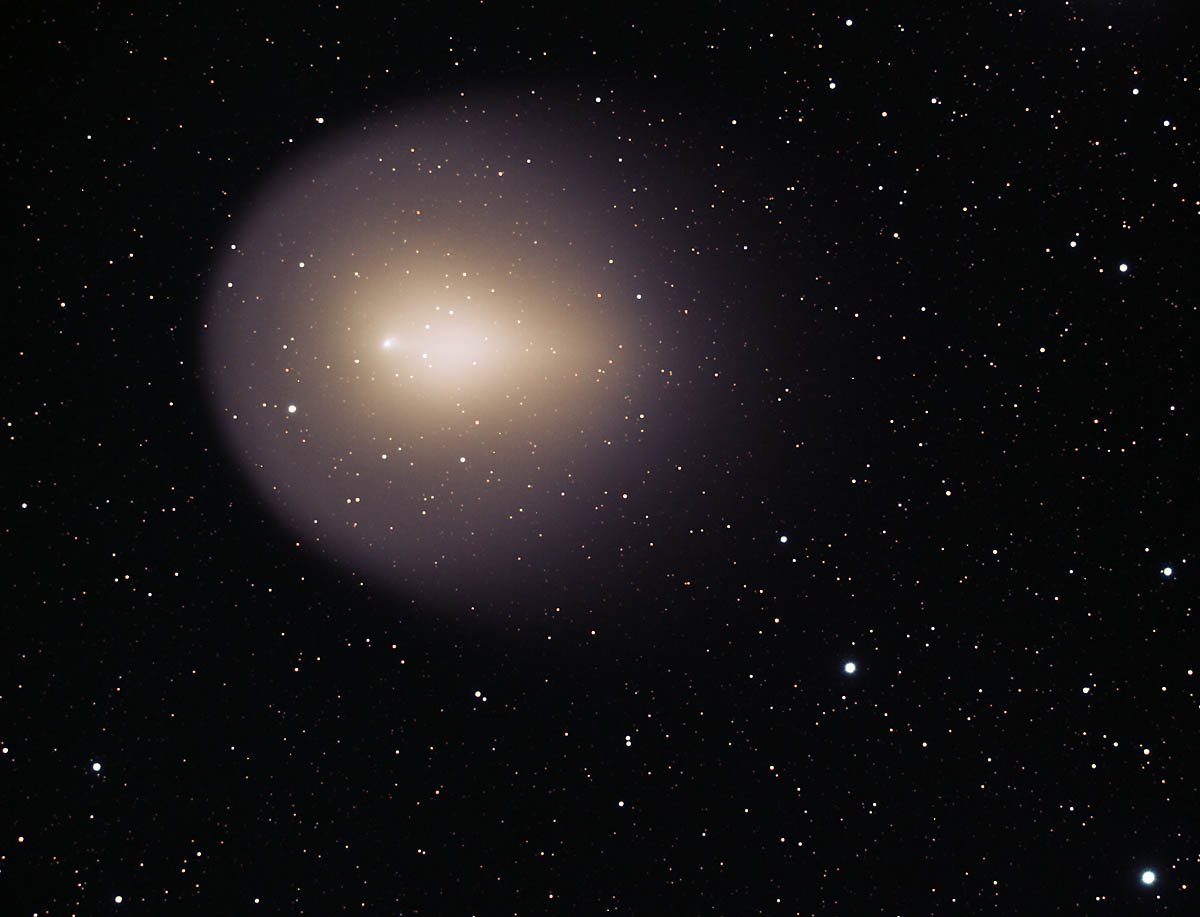
Above: from my back yard using a Celestron light pollution (UHC/LPR) filter. Holmes has grown huge since the image below; as of Nov 15th it's roughly the size of the moon.
Astrogeek talk: This is my first effort with the filter, and it used the ImagesPlus "linear" conversion technique which I don't normally use. Image above composed of 8x2 minute = 16 minutes total exposure, ISO 1600. Canon EOS 20Da (unmodified), Takahashi TOA 130 (a 5" APO refractor) with reducer, and Astro-Physics AP 900GTO mount. Look below for an alternate version of 17P/Holmes.
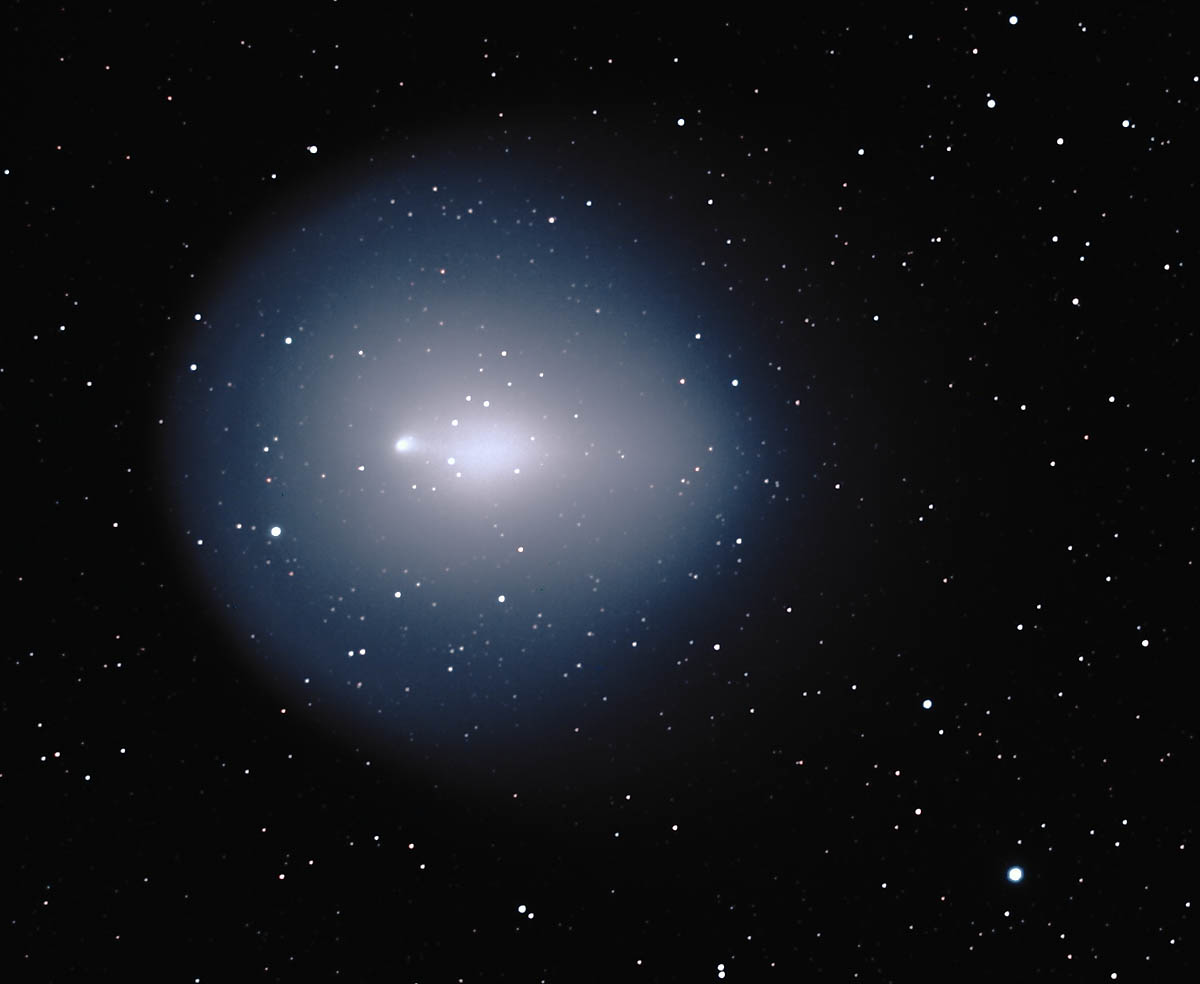
Above: I re-aligned my Nov 15, 2007 images on the comet head, which didn't seem to make too much difference, and then processed with an alternate, and bluer, color correction approach (where I tried to make the brightest part of the comet's trail a neutral white.) I tried to preserve the highlight detail in the head where it looks like a jet is flowing to the right. Note the dark bow feature on the leading edge. I made heavy use of my LAB a and b channel stretching technique as described in my DSLR Workflow. This also used linear processing in ImagesPlus.
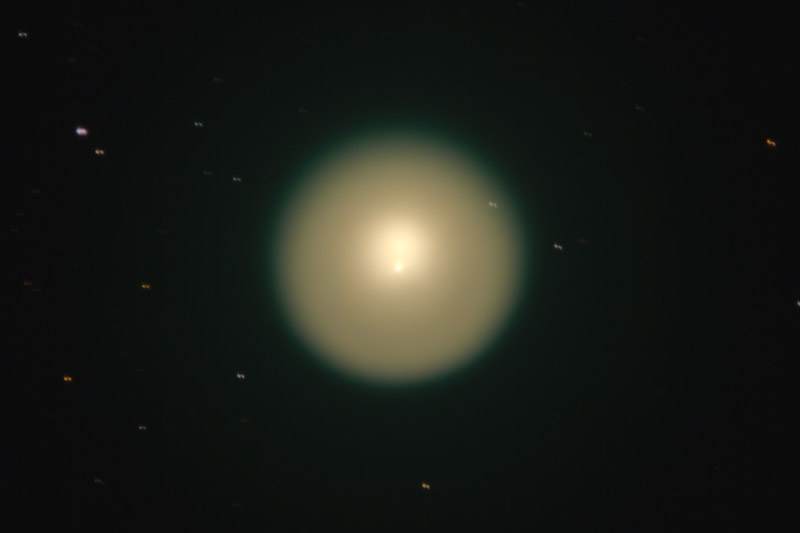
This comet suddenly and unexpectedly brightened by ~ a million times, from maybe magnitude 17.6 (really, really dim) to naked eye "star" in Perseus, altering the visual appearance of the constellation. It's the most unusual looking comet I've seen. I believe any "tail" would be mostly pointing away from us. (The squiggly star trails are the result of combining 24 x 35 second images, aligned on the comet. The comet is moving through the sky at a slightly different speed than the stars.) Same equipment as two images above, except used 1.6 extender instead of reducer.
Holmes images are from the night of 10/27/2007 from The Woodlands. There are some moon pictures from this night here. Scroll down for more comet photographs.
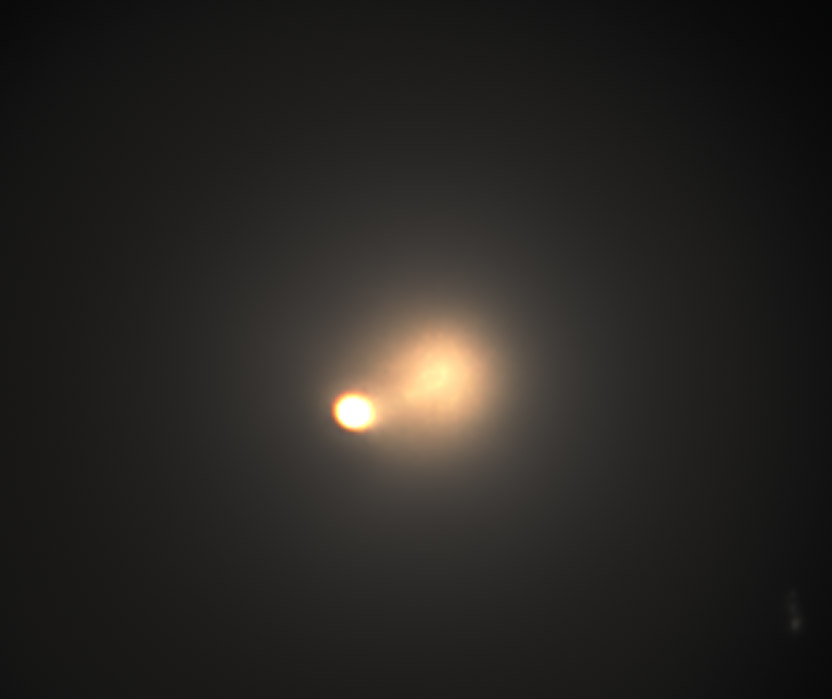
I processed this shot to emphasize the brightness differences in the center of the core. Pretty interesting. This is a 3x blow up of the frame. Scroll for more comet pictures.
Homes Notes: A 94% moon was 24 degrees away. Combination of 20 frames of 35 seconds each, guided on a star (i.e., not guided on the comet). I tried to align the core of the comet using Images Plus. The star on the lower right shows the star drift, caused by the comet's motion relative to the rest of the sky. Note I aligned the images by hand and the oblong stellar nucleus is probably a byproduct of that and guiding, etc.
Copyright © 2007 by Dick Locke. All Rights Reserved.
Contact and Image Use Information